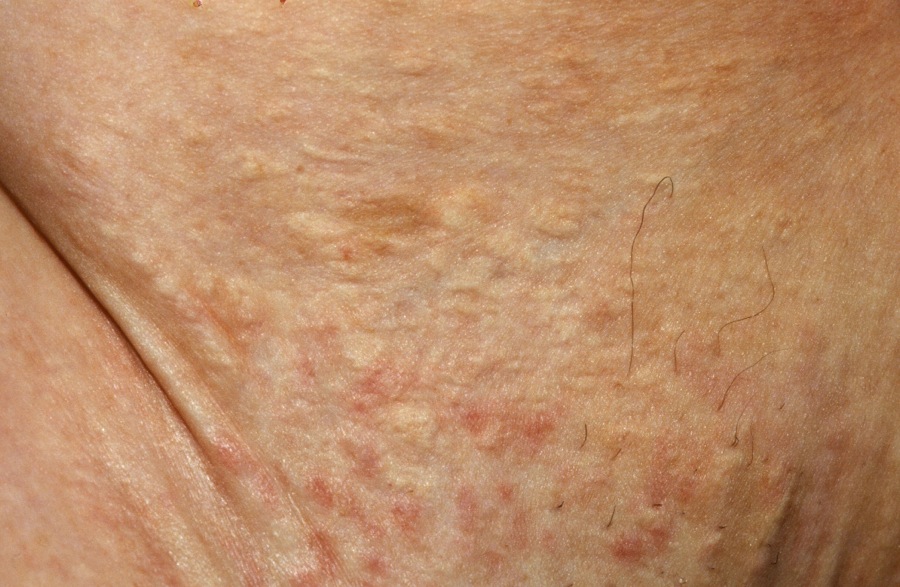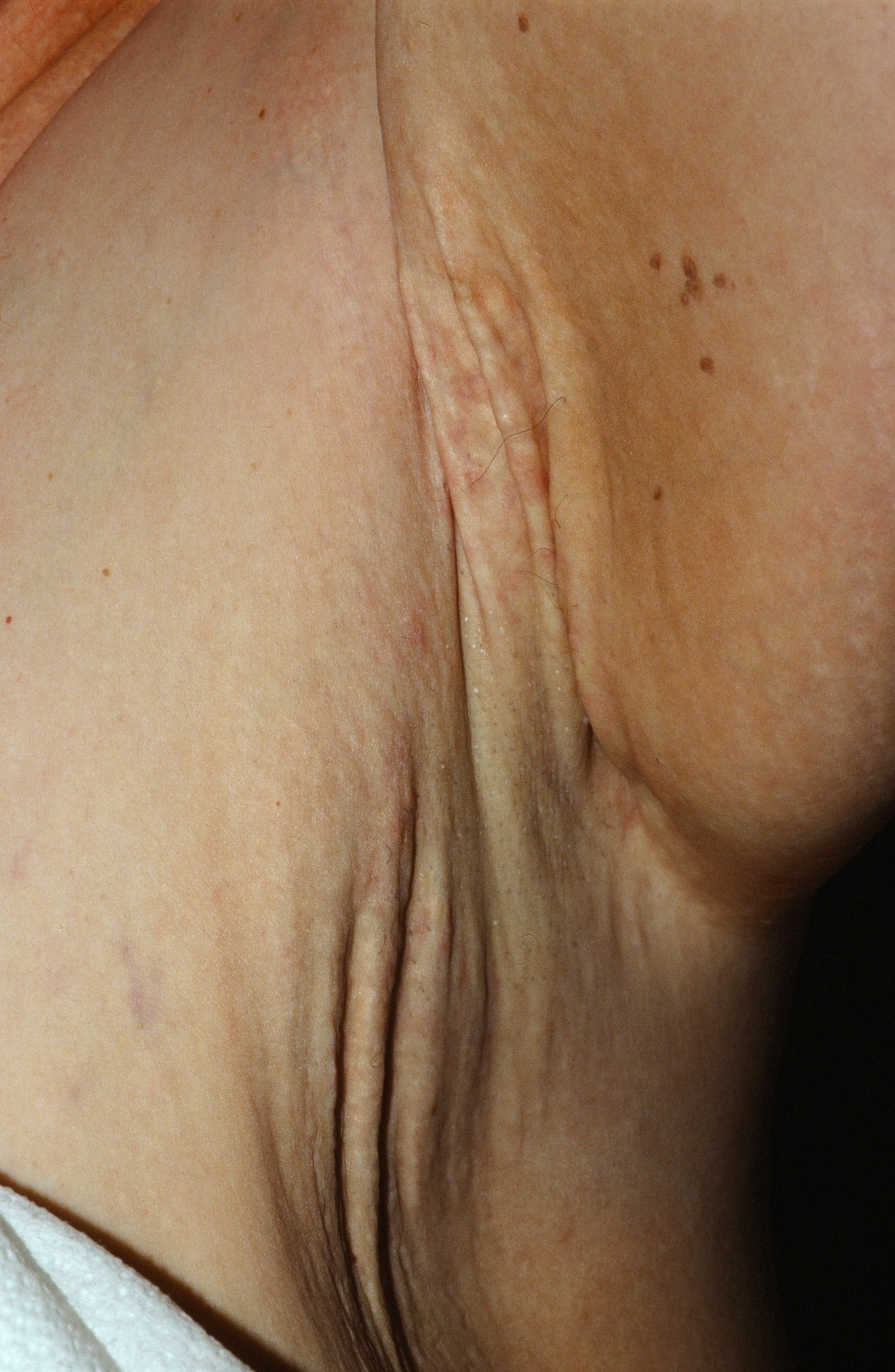
Yellow papules and cobblestoning in the axilla.

Yellow papules and cobblestoning in the axilla.
Pseudoxanthoma Elasticum (PXE) is a rare heritable disorder resulting in the progressive calcification of elastic fibers in skin, eye, and the cardiovascular system. Mutations in the ATP-binding cassette gene, ABCC6 (MRP6) gene on chromosome 16 which encodes a transmembrane transporter protein have been shown to cause PXE. Both AR and AD inheritance forms are reported. The skin changes are most commonly noted in the second decade of life, although this condition is probably under diagnosed as the skin changes are often subtle. Systemic involvement of the ocular, gastrointestinal and cardiovascular systems is seen.
The skin changes typically appear during childhood or early adolescence. However, they may also first be noticed in late adulthood. Yellow papules and cobble-stoning are best seen on the sides of the neck and the axilla, but these changes may also be seen in the antecubital and popliteal fossa, inguinal and periumbilical areas. Often, the analogy is made to plucked chicken skin. Over time, the skin may loose its elasticity, resulting in significant wrinkling.

PXE of the axilla. Over time, the skin may loose its elasticity, resulting in significant wrinkling.
Homepage | Who is Dr. White? | Privacy Policy | FAQs | Use of Images | Contact Dr. White